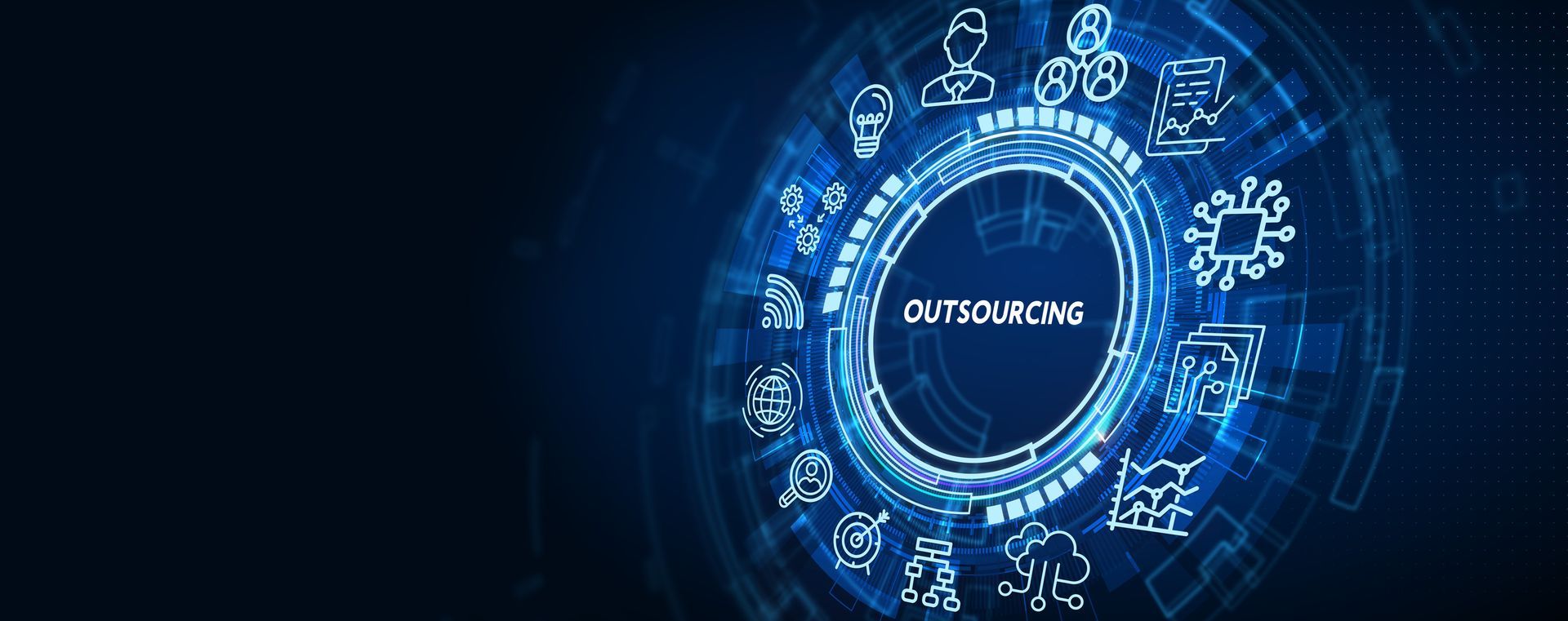Solving Payroll Headaches with AI Innovation
Managing payroll is a critical task for any business, but it's often fraught with challenges that can lead to errors, inefficiencies, and compliance issues. For business owners and HR professionals, these payroll problems can be a source of significant stress and frustration. The good news? Artificial intelligence (AI) is revolutionizing the way payroll is handled, offering innovative solutions to common issues.
In this blog post, we'll explore how AI can help eliminate common payroll issues, ensuring smooth operations and happier employees.
Streamlining Payroll Processing
Automating Repetitive Tasks
One of the biggest advantages of AI in payroll is the automation of repetitive tasks. Traditional payroll processing involves numerous manual calculations, data entries, and validations.
These repetitive tasks are not only time-consuming but also prone to human error. AI-powered payroll systems can automate these processes, reducing the risk of errors and freeing up valuable time for HR professionals to focus on more strategic tasks.
Reducing Human Error
Even the most meticulous HR professional can make mistakes when handling payroll manually. Errors in payroll can lead to unhappy employees, legal issues, and financial losses.
AI can significantly reduce the likelihood of such errors by automating calculations and data entries. AI algorithms can quickly detect discrepancies and ensure that all payroll data is accurate and consistent, minimizing the risk of costly mistakes.
Enhancing Data Accuracy
Accurate data is essential for effective payroll management. AI can enhance data accuracy by continuously monitoring and validating payroll information.
AI-powered systems can cross-reference data from various sources, such as time and attendance records, employee databases, and tax regulations, to ensure that all information is up-to-date and correct. This level of accuracy helps prevent payroll discrepancies and ensures that employees are paid correctly and on time.
Improving Compliance
Staying Up-to-Date with Regulations
Payroll regulations are constantly changing, making it challenging for businesses to stay compliant. Non-compliance can result in hefty fines and legal consequences.
AI can help businesses stay up-to-date with the latest payroll regulations by automatically updating the system with new rules and requirements. AI algorithms can also analyze payroll data to ensure compliance with local, state, and federal laws, reducing the risk of non-compliance.
Automating Compliance Checks
Compliance checks are an essential part of payroll processing, but they can be time-consuming and complex. AI can automate compliance checks, ensuring that all payroll processes adhere to regulatory requirements.
AI-powered systems can perform real-time audits, identify potential compliance issues, and generate reports to help businesses address any concerns promptly. This automation not only saves time but also enhances the accuracy and reliability of compliance checks.
Generating Accurate Reports
Accurate reporting is crucial for maintaining compliance and making informed business decisions. AI can generate detailed payroll reports, providing businesses with valuable insights into their payroll processes.
These reports can include information on employee compensation, tax deductions, benefits, and more. AI-powered reporting tools can also customize reports based on specific business needs, ensuring that all relevant data is captured and presented in a clear and concise manner.
Enhancing Employee Experience
Ensuring Timely Payments
Timely and accurate payments are essential for employee satisfaction. Delays or errors in payroll can lead to disgruntled employees and decreased morale. AI can help ensure that employees are paid on time, every time, by automating payroll processing and reducing the risk of errors.
AI-powered systems can also send automated reminders and notifications to HR professionals, ensuring that payroll deadlines are met consistently.
Providing Self-Service Options
Employees often have questions about their payroll, such as how to access their pay stubs, update their personal information, or understand their tax deductions. AI can enhance the employee experience by providing self-service options through chatbots and virtual assistants.
These AI-powered tools can answer common payroll questions, guide employees through the process of updating their information, and provide real-time assistance, reducing the need for HR intervention.
Personalizing Benefits and Compensation
AI can also help businesses personalize benefits and compensation packages for their employees. By analyzing employee data, AI algorithms can identify trends and preferences, allowing businesses to tailor their offerings to meet individual needs.
This level of personalization can improve employee satisfaction and retention, as employees feel valued and recognized for their unique contributions to the organization.
Reducing Payroll Costs
Optimizing Workforce Management
Effective workforce management is essential for controlling payroll costs. AI can optimize workforce management by analyzing data on employee attendance, productivity, and overtime.
AI-powered systems can identify patterns and trends, helping businesses make informed decisions about scheduling, staffing levels, and resource allocation. By optimizing workforce management, businesses can reduce payroll costs and improve overall efficiency.
Minimizing Overtime Expenses
Overtime expenses can quickly add up and strain a company's payroll budget. AI can help minimize overtime expenses by predicting staffing needs and optimizing work schedules.
AI algorithms can analyze historical data and forecast future demand, ensuring that the right number of employees is scheduled for each shift. This proactive approach helps prevent unnecessary overtime and reduces payroll costs.
Detecting Fraud and Anomalies
Payroll fraud and anomalies can result in significant financial losses for businesses. AI can detect fraudulent activities and anomalies by continuously monitoring payroll data for unusual patterns and behaviors.
AI-powered systems can flag suspicious transactions, such as duplicate payments or unauthorized changes to employee records, and alert HR professionals to investigate further. By detecting fraud and anomalies early, businesses can protect their payroll budget and maintain financial integrity.
Increasing Efficiency
Streamlining Onboarding Processes
Onboarding new employees can be a time-consuming and complex process. AI can streamline onboarding by automating administrative tasks, such as collecting employee information, verifying documents, and setting up payroll accounts.
AI-powered systems can also provide new hires with personalized onboarding experiences, guiding them through the process and answering their questions in real time. This efficiency not only saves time but also ensures a smooth and positive onboarding experience for new employees.
Enhancing Integration with Other Systems
Effective payroll management requires seamless integration with other business systems, such as HR, finance, and time and attendance. AI can enhance integration by connecting payroll systems with other enterprise software, allowing for real-time data sharing and synchronization.
This integration ensures that all relevant information is accurately captured and updated across all systems, reducing the risk of discrepancies and improving overall efficiency.
Reducing Administrative Burdens
Administrative tasks, such as data entry, record-keeping, and report generation, can be burdensome for HR professionals. AI can reduce these administrative burdens by automating routine tasks and providing real-time insights and analytics.
AI-powered systems can handle large volumes of data quickly and accurately, allowing HR professionals to focus on more strategic initiatives and value-added activities.
Conclusion
Artificial intelligence is transforming the way businesses manage payroll, offering innovative solutions to common challenges. For business professionals and organizations looking to integrate AI into their operations, the benefits are clear. AI is a crucial tool for achieving operational excellence, maintaining compliance, and gaining a competitive advantage.
Ready to Revolutionize Your Payroll?
Don't let payroll headaches hinder your business's growth. Partner with Sela Tax & Accounting LLC and experience a seamless, stress-free payroll process. Contact us to learn about our
professional payroll services designed to help businesses of all sizes streamline operations. We ensure accuracy and compliance, saving you time and resources so you can focus on growing your business! Your future of efficient payroll management starts now!




